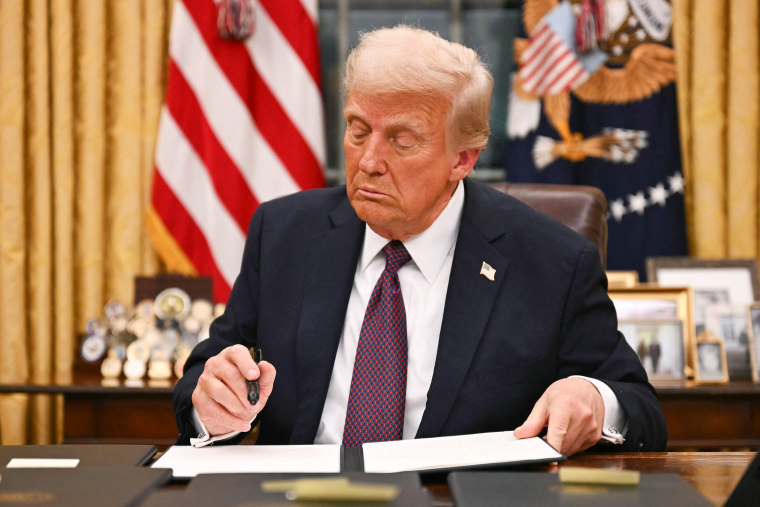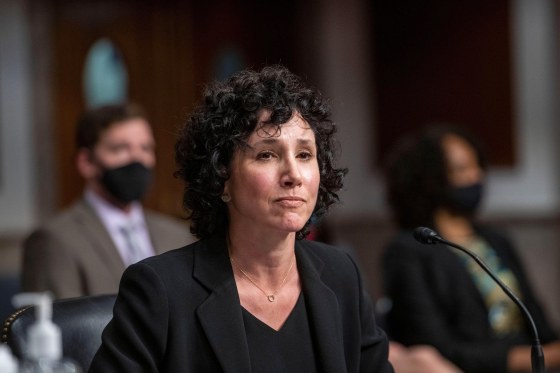GREENBELT, Md. — A federal judge issued a nationwide hold on Wednesday indefinitely blocking President Donald Trump’s order to restrict birthright citizenship as the case makes its way through the courts, saying that “U.S. citizenship is a right no less precious than life or liberty.”
“The executive order conflicts with the plain language of the 14th Amendment, contradicts 125-year-old binding Supreme Court precedent and runs counter to our nation’s 250-year history of citizenship by birth,” U.S. District Judge Deborah L. Boardman said during a hearing in Greenbelt. “No court in the country has ever endorsed the president’s interpretation. This court will not be the first.”
The order was set to go into effect on Feb. 19.
Wednesday’s preliminary injunction was the second temporary hold against Trump’s executive order. It follows a lawsuit filed two weeks ago by the Asylum Seeker Advocacy Project, the immigrant services organization CASA and the Institute for Constitutional Advocacy and Protection at Georgetown Law on behalf of five pregnant women and ASAP and CASA’s members. The Department of Justice did not immediately respond to a request for comment about the judge’s order.
“Citizenship is a most precious right, expressly guaranteed by the 14th Amendment of the Constitution,” Boardman said Tuesday.
On Thursday in Seattle, a separate judge, U.S. District Judge John Coughenour also issued a nationwide preliminary injunction blocking Trump’s executive order, saying that as a judge his job was protecting the rule of law and that the administration’s order was unconstitutional.
Trump’s order, which he called “Protecting the Meaning and Value of American Citizenship,” attempts to limit birthright citizenship to people who have at least one parent who is a United States citizen or permanent resident. It states that those born to parents who are in the country legally, but temporarily, will no longer be automatically guaranteed citizenship, including high-skill work visas and student visas.
"This administration believes that birthright citizenship is unconstitutional, and that is why President Trump signed that executive order," White House press secretary Karoline Leavitt said last week. "Illegal immigrants who come to this country and have a child are not subject to the laws of this jurisdiction. That’s the opinion of this administration."

The plaintiffs in the case called the injunction a victory.
“This is the level of fight that will be required for the next four years of the Trump administration,” George Escobar, CASA’s chief of programs and services, said in a statement to NBC News on Wednesday. “The pregnant women who took this case up against President Trump — and so many immigrants across the country — can breathe easier knowing that their precious children are citizens and afforded the full rights that come with that.”
“Today, the court made the right decision to temporarily block the Birthright Citizenship Executive Order. The Executive Order has created chaos for so many families, including ASAP members, who are scared their children will not be able to live a life free of fear in the only country they will have ever known,” Swapna Reddy, ASAP’s co-executive director, said in a statement.
Trinidad, a pregnant asylum-seeker and plaintiff in the lawsuit, said in the statement that “all I have wanted is to focus on my baby being born healthy and safe, but instead, even though my baby will be born in the U.S., I have been worried that they will be denied a right is that guaranteed under the constitution — the right to be a U.S. citizen.”
Ahead of the judge’s decision, multiple pregnant women who would be affected by the executive order spoke to NBC News about how what was supposed to be a time of excitement for their growing families has instead been shadowed by a deep fear that they could be torn apart or that their babies will lack the rights of a U.S. citizen despite being born here.
Procedurally, the Justice Department can now appeal Wednesday's preliminary injunction to the U.S. 4th Circuit Court of Appeals. The Justice Department lawyer who argued the case did not say if the department plans to file such an appeal.
About two dozen states have also filed lawsuits against the Trump administration contesting the order, which experts say violates the 14th Amendment. The Amendment reads, “All persons born or naturalized in the United States, and subject to the jurisdiction thereof, are citizens of the United States and of the State wherein they reside.”
A federal judge in Seattle had issued a temporary restraining order for 14 days on Jan. 23. That case, and others around the country, will continue regardless of Wednesday’s order.
In that case, Trump’s Justice Department lawyers told the judge that the order was an “integral part” of the president’s efforts to “address this nation’s broken immigration system and the ongoing crisis at the southern border.”

